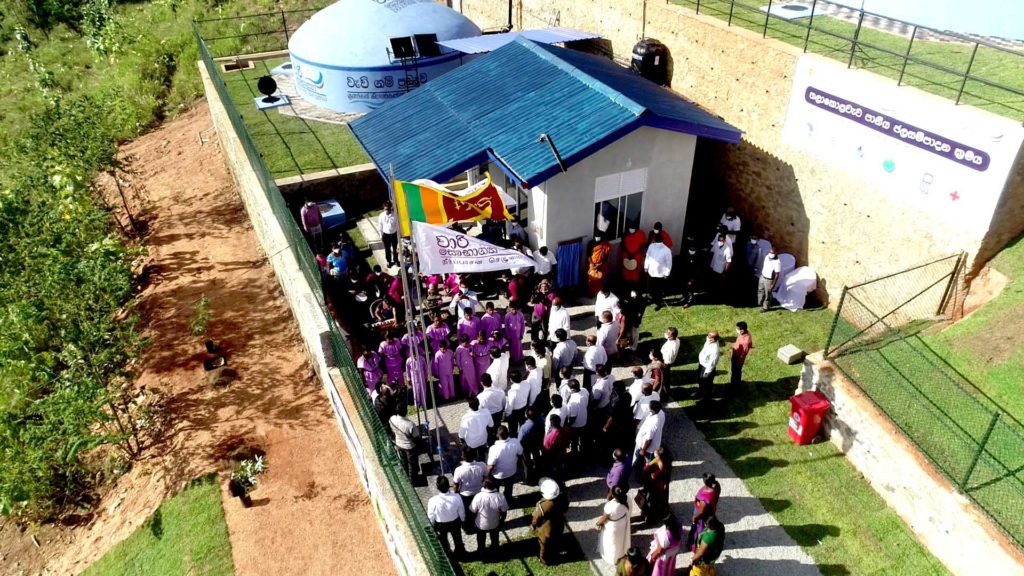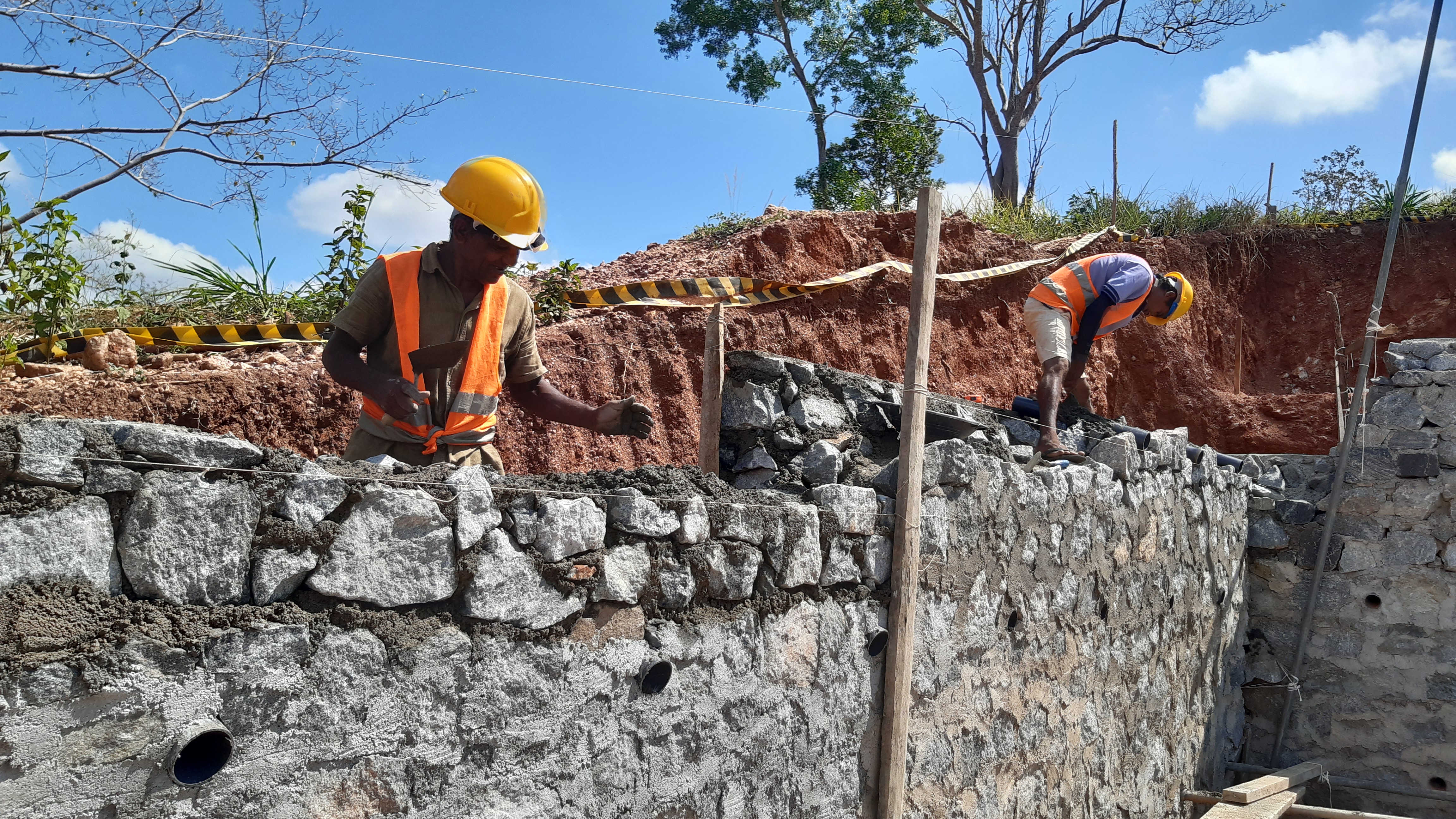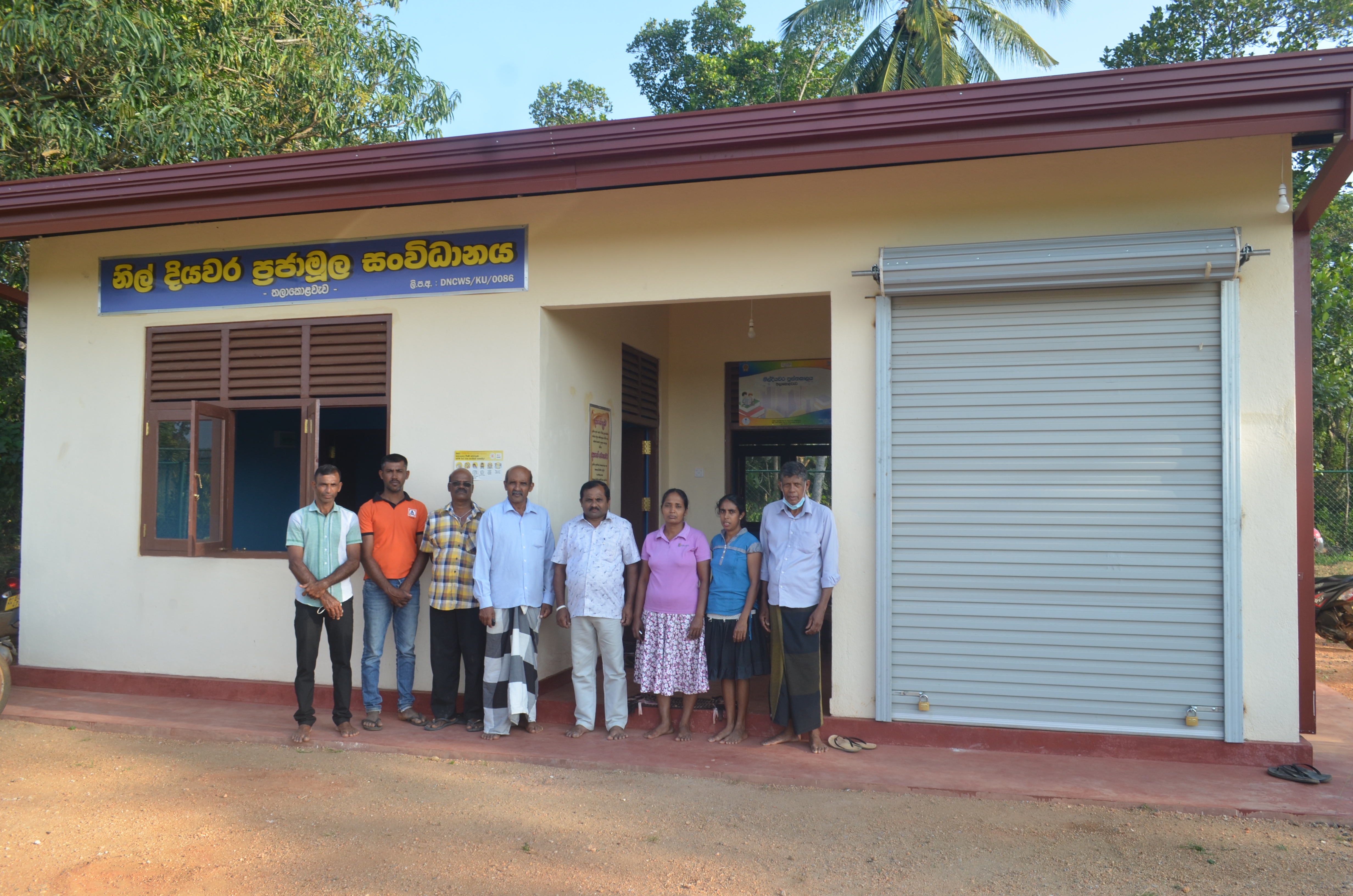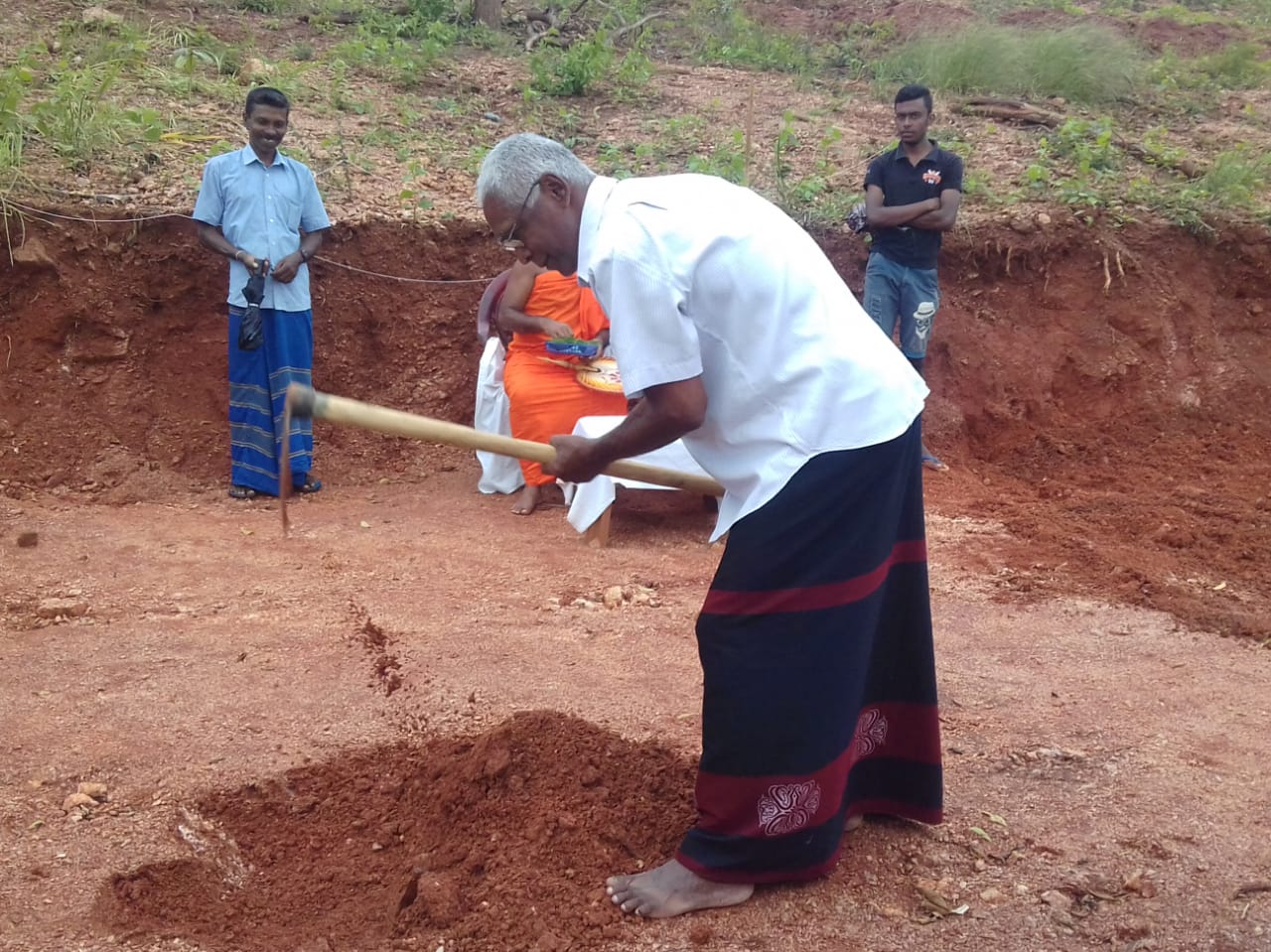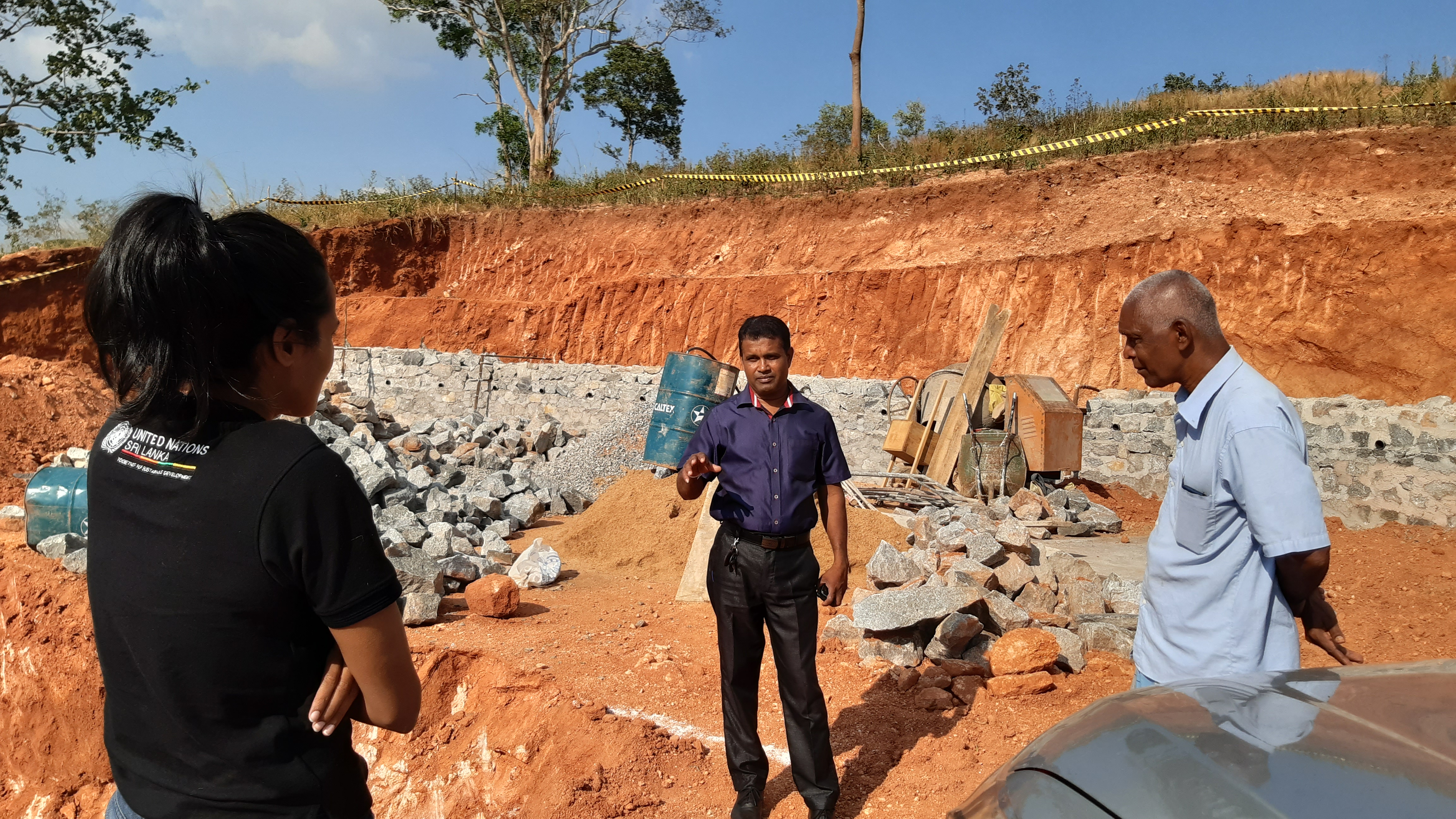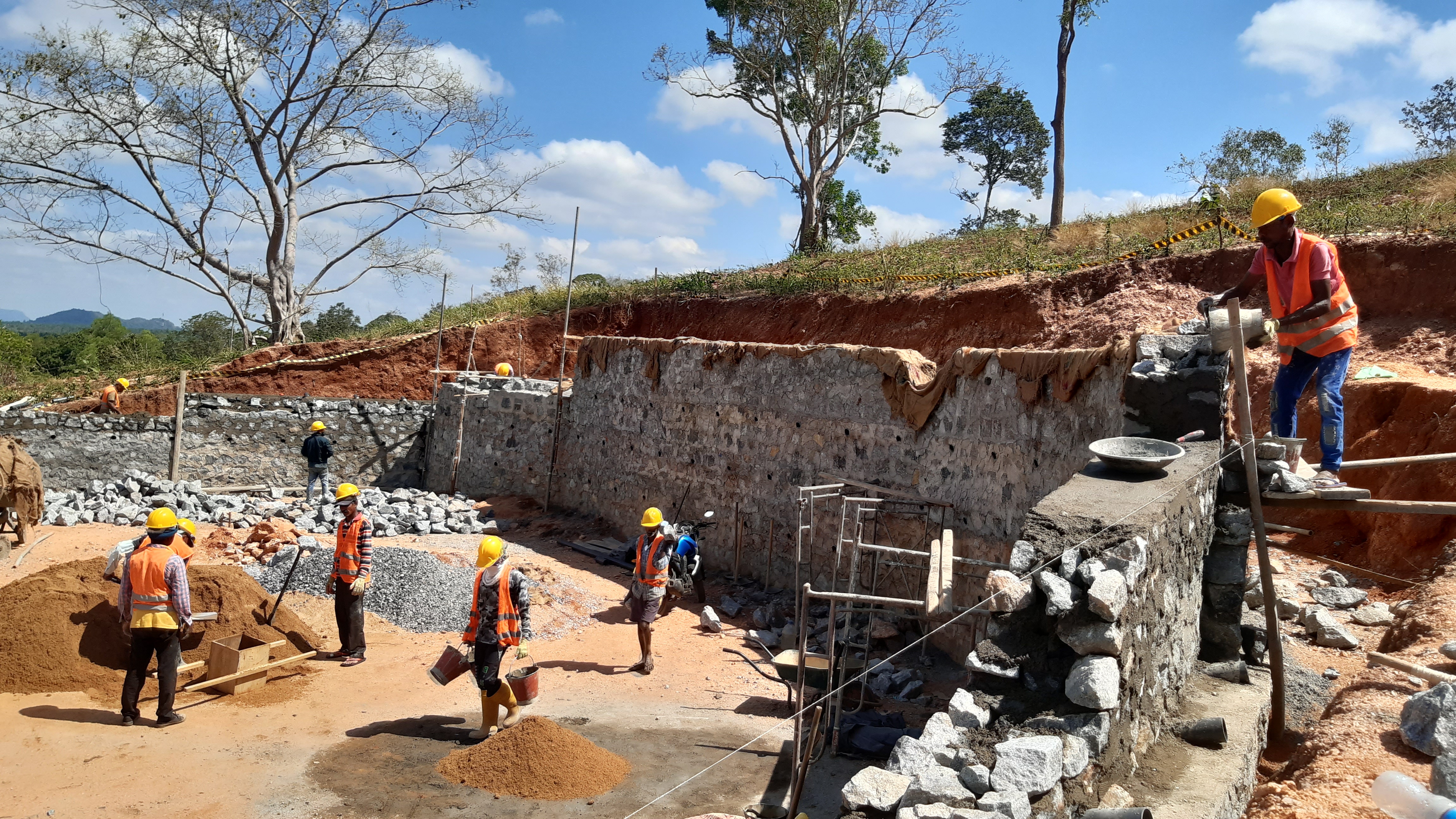Community based adaptation to climate change; Implementing sustainable drinking water solutions through community empowerment
By Ganga Kariyawasam
Production of adequate and safe drinking water is a high priority issue for safeguarding the health and well-being of people in the world today. People in the dry zone in Sri Lanka is facing this challenge which is exacerbated by the impacts of climate change; one of the most complex challenges facing the country today. When the situation in the wider context is as such, the community in Thalakolawewa Grama Niladhari (GN)[1] Division, (Polpithigama Divisional Secretariat Division in Kurunegala District), struggled for the same for years. They established Nildiyawara Community Based Organization (CBO) in 2014, and tried several options to reach their target, but was not successful until they met Climate Resilient Integrated Water Management Project (CRIWMP) in 2018.
Sri Lanka Red Cross Society (SLRCS) as the Civil Society Organization (CSO) in the project in Kurunegala district, mobilized the community to plan a community-managed drinking water infrastructure project with the Government and other partners involved in the project. Since then, the community in Thalakolawewa engaged in the process of implementing their Rural Water Supply (RWS) Scheme from inception till the end.
In this process, capacity building and strengthening of the institutional setup of the community water supply committee of Nildiyawara CBO was done from the beginning to ensure the sustainability of the intervention. They gathered knowledge and skills through training such as construction supervision, maintenance and operations of water supply schemes, leadership, financial management and auditing. Moreover, they were further strengthened through exposure visits and cross-learning visits to community-managed RWS Schemes in other districts. These activities increased the capacity of CBOs to implement and maintain community-based drinking water supply and ensured meaningful engagement of the community at all stages of the project cycle, including marginalized groups in the area.
Thalakolawewa Community Managed RWS Scheme had been planned, implemented, constructed and commissioned together with the Nildiyawara Community Based Organization representing the user community and also utilizing their contributions. A total of 9.5 million LKR (47,979 USD) had been contributed by the community to build the CBO Office; a 7.5 per cent of the total Project Cost. The project started on 15th October 2019 and completed on 22nd March 2021. The official handing over of Thalakolawewa RWSS to the Community and Nildiyawara CBO done on 30th March 2021, with the presence of Member of Parliament for Kurunegala district & Minister of Highways and State Minister of Rural Paddy and Allied Tanks, Reservoirs and Irrigation Development.
A total of 1,512 persons (330 households) and other government, commercial and religious institutes in Thalakoawewa GN Division benefit at present from the water supply scheme. The lifetime of the project is designed to be until 2039, and planning to provide water supply to 500 households with the capacity of 220,000 litres per day, through a dug well and a tube well. From now onwards it is an asset of the community, owned by Nildiyawara CBO, while the Department of National Community Water Supply (DNCWS) and National Water Supply & Drainage Board (NWDSB) will provide their support in future for Social and Community Development work and technical work.
This Community Managed RWS Scheme is an outcome of a great team effort of Nildiyawara CBO, Ministry of Irrigation, NWSDB, DNCWS, Polpithigama Divisional Secretariat, Polpithigama Pradeshiya Saba[2], United Nations Development Program (UNDP), SLRCS, Ceywater Consultants (Pvt.) Ltd (the consultant to the Project) and Puritas (Pvt) Ltd (the Contractor). SLRCS, as the community mobilization and coordination agency, assured the support and cooperation of all the stakeholders during the project implementation, through effective collaboration and coordination.
The scheme is equipped with climate-resilient and eco-friendly options such as a groundwater recharging system established in the premises of the dug well, a solar lighting system at the treatment plant and a solar power system in the CBO office with a capacity of 3.5kw to supply electricity to the main electricity grid.
This RWS Scheme helped to provide year-round access to quality drinking water for the community in Thalakolawewa, a remote and rural area of the country. It increased the adaptive capacities of the community to face new climatic variabilities and shocks, facing at present as a result of climate change. Moreover, it strengthened and empowered water users and their organizations to engage in sustainable management of water resources and related infrastructure.
About the CRIWMP:
The Sri Lanka Red Cross Society (SLRCS) mobilizes farmer communities in the dry zone to adapt climate resilient agricultural activities, and is an implementing organization of CRIWMP – which is a 7-year project begun in 2017, aiming at strengthening the resilience of smallholder farmers in Sri Lanka’s Dry Zone to unpredictable climate and extreme events.
The Project is financed through a grant received from the Green Climate Fund (GCF) while the Government of Sri Lanka has committed to co-finance the activities identified under the Project as well. The Ministry of Irrigation is an implementing partner for this project, and technical assistance is lent by the United Nations Development Program (UNDP) as well. The SLRCS works with a number of government institutions to deliver the project activities and outputs while measuring its impact.
[1] Smallest administrative division in Sri Lanka, which is a subunit of a Divisional Secretariat Division.
[2] Pradeshiya Sabha or Local Authority are the legislative bodies that manage over the third-tier municipalities in the country under the Provincial Councils in the Local Government system of Sri Lanka.
